Three years ago, I ventured into the vast Alaskan wilderness to backpack for two weeks. My crew and I navigated through the reality of our topographic maps, surprised by the steepness of slopes, the constant deluge of rain and the thick bushes hidden between the contour lines. Every day after a few epic miles, we stopped for camp, set up our shared shelters and cooked deliciously filling meals over our whispering stoves. Those evenings under the quiet tickle of rain on our tarps, we grew together in laughter and shared spaces, marveling at all we had seen and accomplished that day.
I still draw from this experience and the lessons I learned as I navigate new responsibilities, jobs, relationships and challenges in my life. At Outward Bound, we teach skills and facilitate transference to life after you return home from an expedition. The following four lessons illustrate what you’ll learn and how you can transfer those learnings to your daily life.
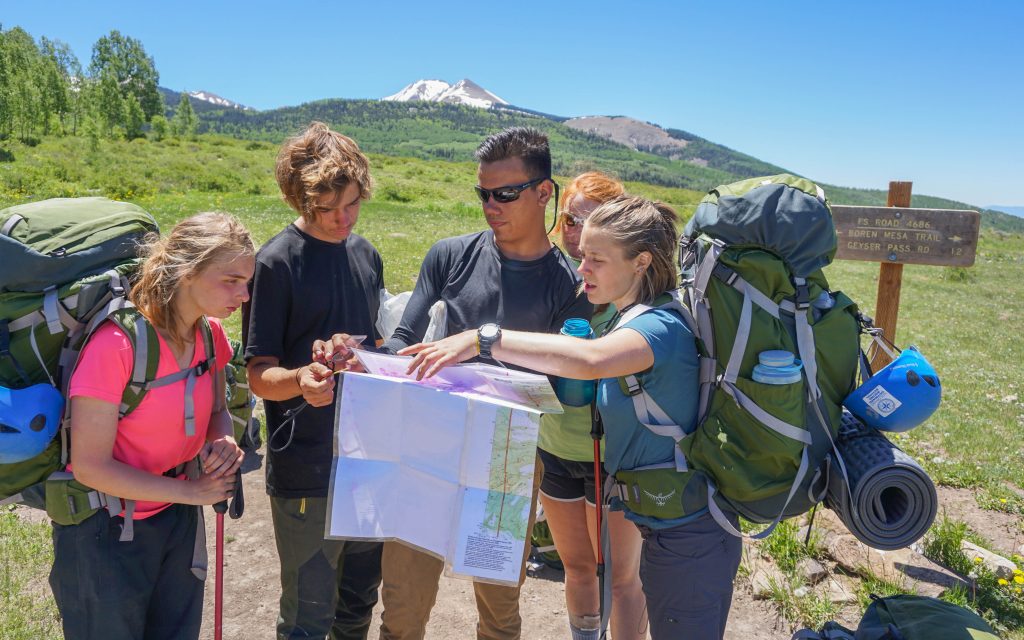
Photo by Dave Erbe
1. Adaptability is Key
There’s nothing quite like navigation and group travel to teach you the important skill of being adaptable. A topographic map only tells part of the story; it doesn’t show weather, transitory snow, animals, recent rock slides, human exhaustion or blisters. Group travel as it relates to hiking is often diminished to a simple algorithm: two miles per hour plus 30 minutes for every 1,000 feet of elevation gain. This ignores the variability of human speed. What about the extended lunch break due to good conversation? Or the extra three miles hiked because you led your group in the wrong direction? No matter the terrain, unpredictable factors in both navigation and group travel are inevitable, therefore your expectations must be flexible.
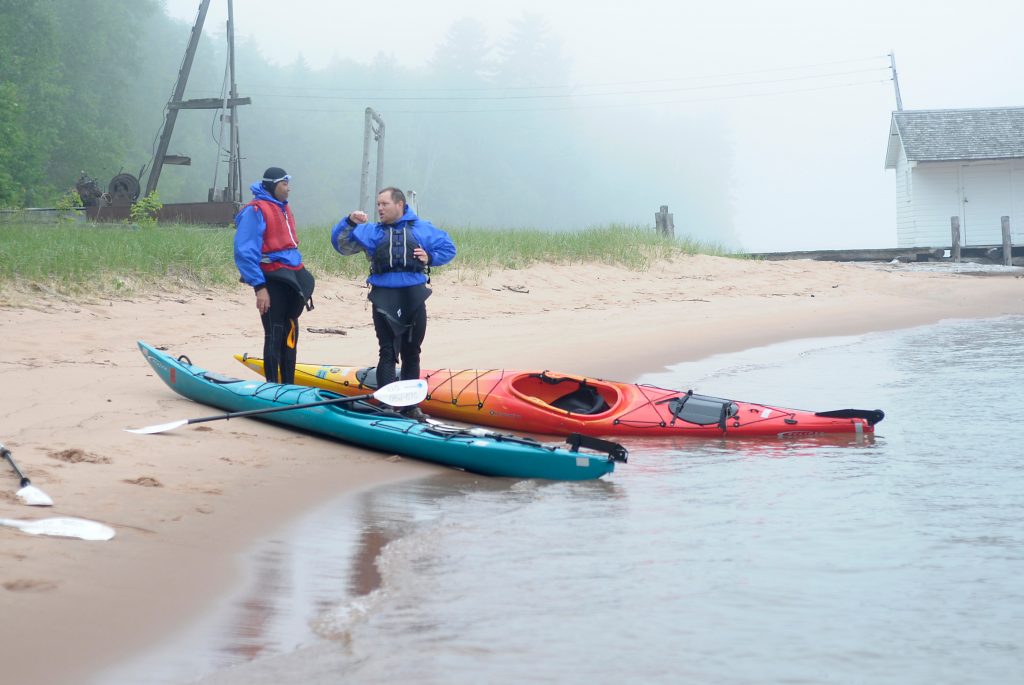
Outward Bound Veterans Program Sea Kayaking
You can apply this to any aspect of life for greater resilience. Life is going to throw a lot of challenges your way. Learning from the things in your life that don’t go as planned—and leveraging them—is an asset that will serve you well in many situations.
2. Slow Down and Stay Present
Without microwaves, sinks or ovens, cooking in the backcountry is a slow process. All water is collected from natural water sources. The stove is set up and primed for use. Ingredients are collected from the group’s food bags. Hands are washed diligently. Each step in backcountry cooking encourages you to slow down and stay present. Watch a pot of fresh lake water boil under crepuscular clouds while you sit with your cook partner. Notice the constant whir of the stove, the bluish-purple flames, the fish-eye bubbles on the bottom of the pot, and the smell of white gas. You can’t rush through the process, so you learn to slow down. Your peers will savor every bite of a well-prepared, intentional backcountry meal and you’ll learn that slowing down and staying present can bring new magic to old routines.
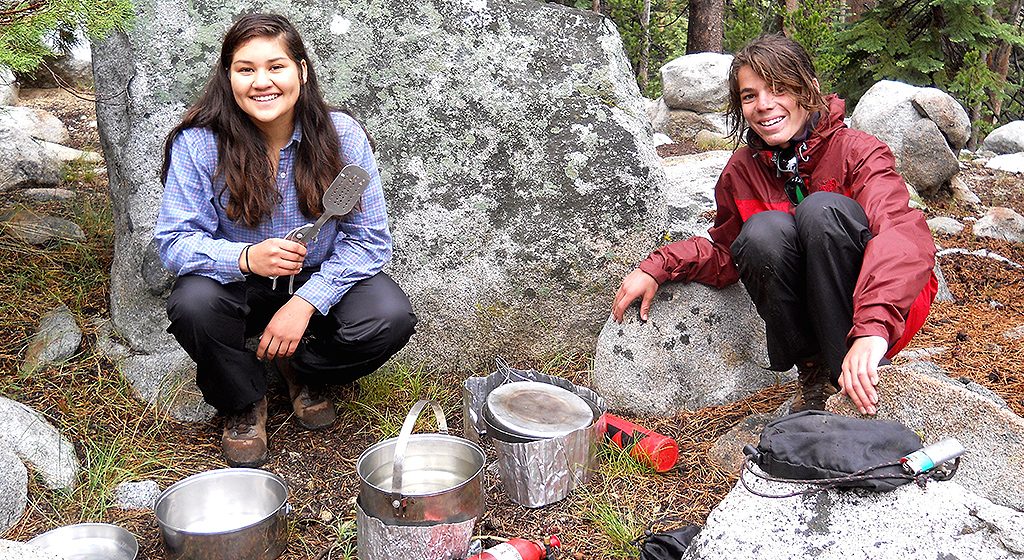
Perhaps you’ll be inspired to find a new route to work tomorrow. Or you’ll make it a point to have a conversation with a stranger when you can. Slowing down and staying present in our lives offers so many benefits. What will you be curious about? What can you notice that you didn’t before?
3. Embrace a Growth Mindset
The concept of pooping outside is a major stressor for many incoming students, regardless of age. Eyes widen behind quiet scoffs as Instructors model how to dig a cat hole or use a “groover” (which is a toilet system for river trips) on the first day of a course. Cortisol levels are often palpable. You may be worried, but your Instructors aren’t. You’ll learn the human ability to shift from a fixed mindset to a growth mindset. Although you might resist the thought of pooping outside at first, you’ll learn to do something you never thought possible. And this applies to your life at home. Doing things that test our perceived boundaries reminds us that they are just that—perceived.
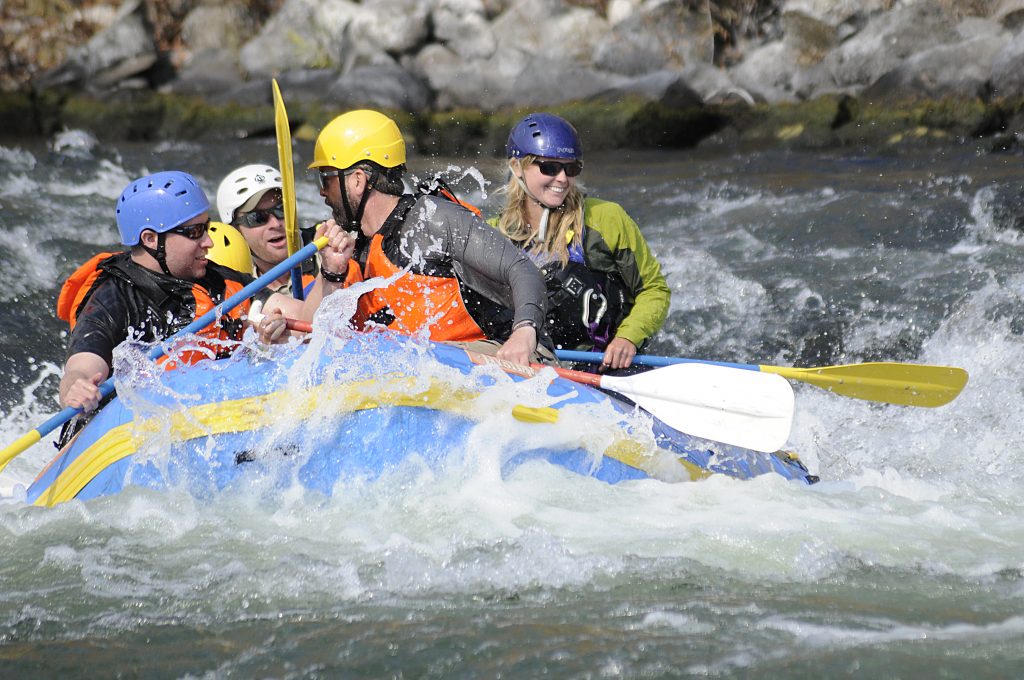
Veterans whitewater rafting on the Deschutes River in Oregon from September 6-12, 2015.
4. Communicate and Learn Conflict Resolution
Sharing shelters and sleeping outside with a group of humans requires good communication and conflict resolution. It’s important to clarify boundaries, routines and pet peeves, and to have practice doing so. The understanding and respect you build with your crew can easily translate to life and relationships back home. Learning to regularly communicate your boundaries and expectations is key for any strong relationship.
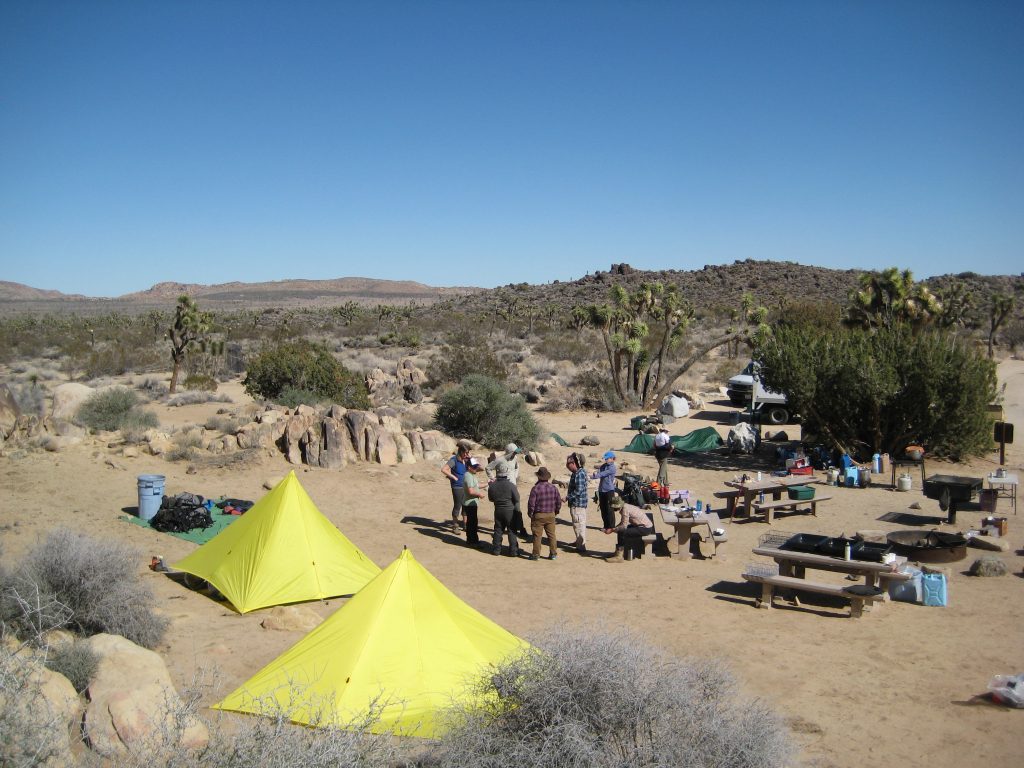
Every Outward Bound experience is unique, yet many lessons are universal, and all are transferable to daily life. I look fondly back on the folly, struggle, silliness and beauty of my time in Alaska. I led my group over the wrong mountain pass. We made calzones in the pouring rain. These experiences ripple through my life in imperceptibly profound ways. I hope your experience with Outward Bound is just as life-changing.
Note from the author: Thank you to the invaluable Outward Bound Instructors and staff who took the time to share their insights on this topic. They are all amazing.
About the Author
Sabrina Stein is an Assistant Instructor for the Northwest Outward Bound School and a Logistics Coordinator for the Colorado Outward Bound School Southwest Program. She is drawn to the tenacity of life in Southwestern deserts and the magic of rivers everywhere. Sabrina pursues rafting as a means to both, and for the added benefit of strong arms and a flexible mentality. Other hobbies include writing, reading, drinking coffee, getting haircuts, singing extremely loud in the car and source-to-sea rafting trips. She will bake you cookies if you hang out with her long enough.
OTHER POSTS YOU MAY LIKE
Read More
Read More
Read More




